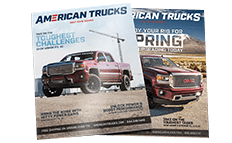
Bike Rack Fit Guide: Finding the Best Bicycle Rack for Your Vehicle
Sure, all bike racks serve the same general purpose—to safely transport your bicycles from point A to point B. But, not all bicycle racks are built the same. And, quite frankly, some do their jobs better than others. Whether your concern is deciding which bike rack will be the easiest to use, or which bike rack is the most trustworthy for your precious wheels, we have all the bike racks fitment information you need to find the right bike rack for your outdoor lifestyle.
Rack Styles
If you break away on your own, your best options would be a roof bike carrier or a trunk bike carrier. If you plan on pedaling in a larger pack, a hitch bike rack is your best bet. With room for up to five cycles and lots of stability, it's the undisputed champ for capacity. If you carry one bike that's built for two, you have to go with a roof rack or truck bed rack. Tandems are just too wide to carry otherwise.
Roof Mount Bike Racks
If your ride has a roof rack already, it's a natural spot to mount a bike carrier. Roof-mounted bike racks are affordable, lightweight and compact. On the downside, they carry only one bike at a time and can be a pain to load on tall vehicles. Many models connect to your front forks, so you have to pop your wheel off and on, too.
Hitch Mount Bike Racks
If you have a trailer hitch receiver, your options expand exponentially. Hitch-mounted bike racks come in a wide range of carrying styles (hanging or platform), capacities (from a pair to a pack) and degrees of stability (anti-sway technology and tight-gripping cradles). And since they're mounted down low, you only have to hoist your bikes up a few inches. However, they are a bit more expensive, a lot heavier and can make it difficult to reach your cargo area.
Trunk Mount Bike Racks
If you have a relatively flat trunk, you have a perfect platform for mounting a trunk-mounted bike rack. These types of bicycle racks attach with a system of adjustable straps and sit on a padded base for added stability. Not only are they relatively inexpensive, but they also offer more carrying capacity and easier access than roof bike carriers. But, they do make it difficult to reach your trunk, and they generally have to be removed when you're finished riding for security.
Truck Bed Mount Bike Racks
If you drive a truck, there's plenty of room to rack up in your payload. From telescoping bars across the front of the bed to simple fork mounts that slide into factory utility rails, you can go big or keep it discreet with a truck bed bike rack. While the options are plentiful and the prices affordable, they do offer less security—both for your two-wheelers and the rack itself.
Which Brand to Go With?
If you're biking every weekend no matter the weather, you probably want a rack that stays put. Roof racks are the best option as full-time passengers because they're always ready for action yet stay out of the way when you're just commuting. If you stick mostly to local trails and travel infrequently with your two-wheeler, a trunk-mount bike rack is the way to go. They're easy to throw on, take off, and store away. If you're a more regular explorer but need extra capacity, nothing beats hitch bike racks. They stay mostly out of your hair (many models tilt, swivel, or dip out of the way of your tailgate), and they come off easy. But, they are more bulky and weigh more than a trunk bike rack, making them potentially difficult to store.
Leading Brands
If you prefer the confidence that comes with leading brands, your best bet is sticking with Yakima bike racks and Thule bike racks. These two titans of the carrier industry have reputations for crafting high-quality racks that are stable, secure, and simple to use. Because of their popularity, though, their prices can run higher. If you're trying to conserve your cash flow, we also carry a lot of affordable, yet just as dependable, brands. Make sure to check out the bike rack reviews from other customers to get their unbiased opinion. And for more information, jump over to our Bike Racks Buying Guide.

